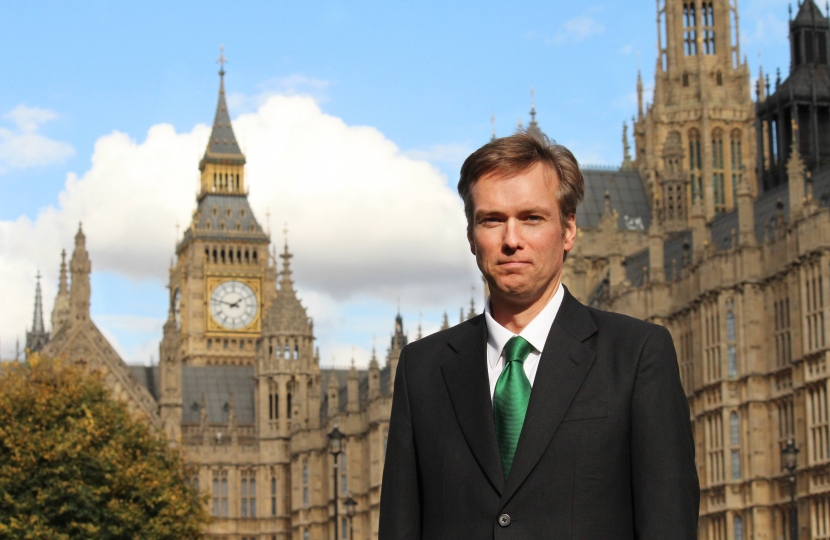
As I campaigned in Crawley two years ago in support of the UK leaving the European Union, one point which was clear to me was that the Brexit vote was about far more than simply leaving a political union; it was also a call to change how government serves the country.
One of the many reasons I voted to leave was the opportunity to improve how we can look after our animals. Having campaigned for enhanced animal protection for many years, and as a Patron of the Conservative Animal Welfare Foundation I am delighted to see the zeal with which the Environment Secretary, Michael Gove, is going about his work and I welcome confirmation from the Prime Minister that there will be no vote in this parliament on repealing the fox hunting ban.
We are, of course, a nation of animal lovers. I am struck by the passion of my own constituents contacting me on a whole range of issues related to animal welfare which I continue to pursue.
The EU’s sentient animals protocol allows bullfighting, veal farming, cruel fur product imports, live exports for slaughter and foie gras ‘production’.
I questioned the Environment Secretary on these two last points in the House of Commons in December, and am pleased to co-sponsor the Live Animal Exports (Prohibition) Bill, due to have its second reading in the House of Commons in February.
Live transport of animals is regulated by EU rules, however after animals leave the UK there are worrying questions over the enforcement of these. Cases where animals suffer from exhaustion and dehydration, in appalling conditions without sufficient food or water, are not acceptable.
Foie gras is a so-called ‘delicacy’, similar to pâté, made from diseased livers of ducks or geese after being force-fed maize repeatedly, by having a metal tube inserted down their throats numerous times a day.
We have a proud history as a country in protecting animals, including being the first nation in the world to introduce an animal welfare law. While foie gras production is banned in the UK, imports of the barbaric product to this country sadly continue.
Around 200 tonnes of foie gras is imported from mainland Europe each year for sale in shops, delis and restaurants and over a million birds die for foie gras each year. For the UK to turn its back on such cruelty, and legislate to outlaw imports of foie gras would go to deliver and demonstrate further the commitment of ministers to use Brexit to improve animal protection measures in our country.
The Environment Secretary has demonstrated great enthusiasm for reform in this area; but it is incumbent on MPs to continue to hold ministers to account and ensure this good will leads to real change.
The Draft Animal Welfare (Sentencing & Recognition of Sentience) Bill makes provision to increase the sentence for the worst acts of animal cruelty to five years imprisonment. It also goes to ensure that animals are defined in UK law as sentient beings.
The Government have already confirmed plans to ban the trade in ivory which puts the lives of African elephants in danger. Additionally, the introduction of CCTV in slaughterhouses, an issue I have previously secured a House of Commons debate on, is a vital move to ensure the safety of animals in abattoirs before slaughter; fulfilling a Conservative manifesto pledge.
Before Christmas the Environment Secretary announced plans to address puppies being reared by unscrupulous breeders with no regard for their welfare, and additionally reiterated that the Government are looking at ways to end live animal exports for slaughter, possible with Britain’s EU exit.
While the Government are moving in the right direction there is lots more to be done to ensure our country makes the most of Brexit to protect, enhance and improve animal welfare standards.
Henry Smith MP

